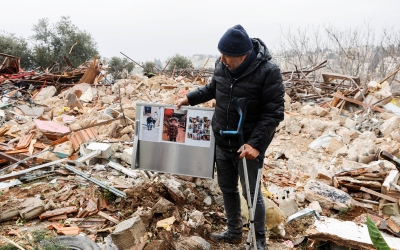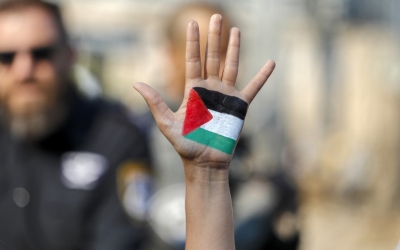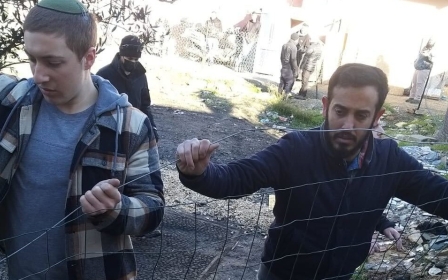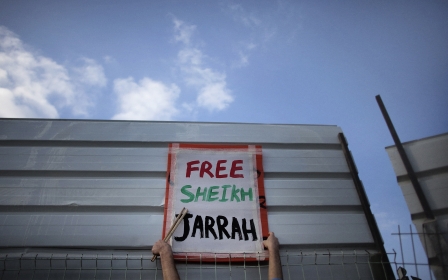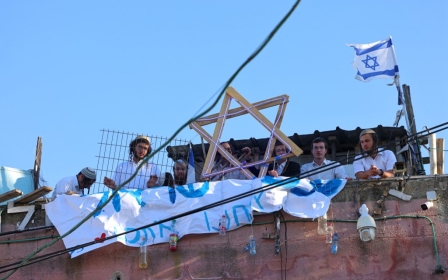Sheikh Jarrah: Residents promise to stand firm after Salhiya demolition
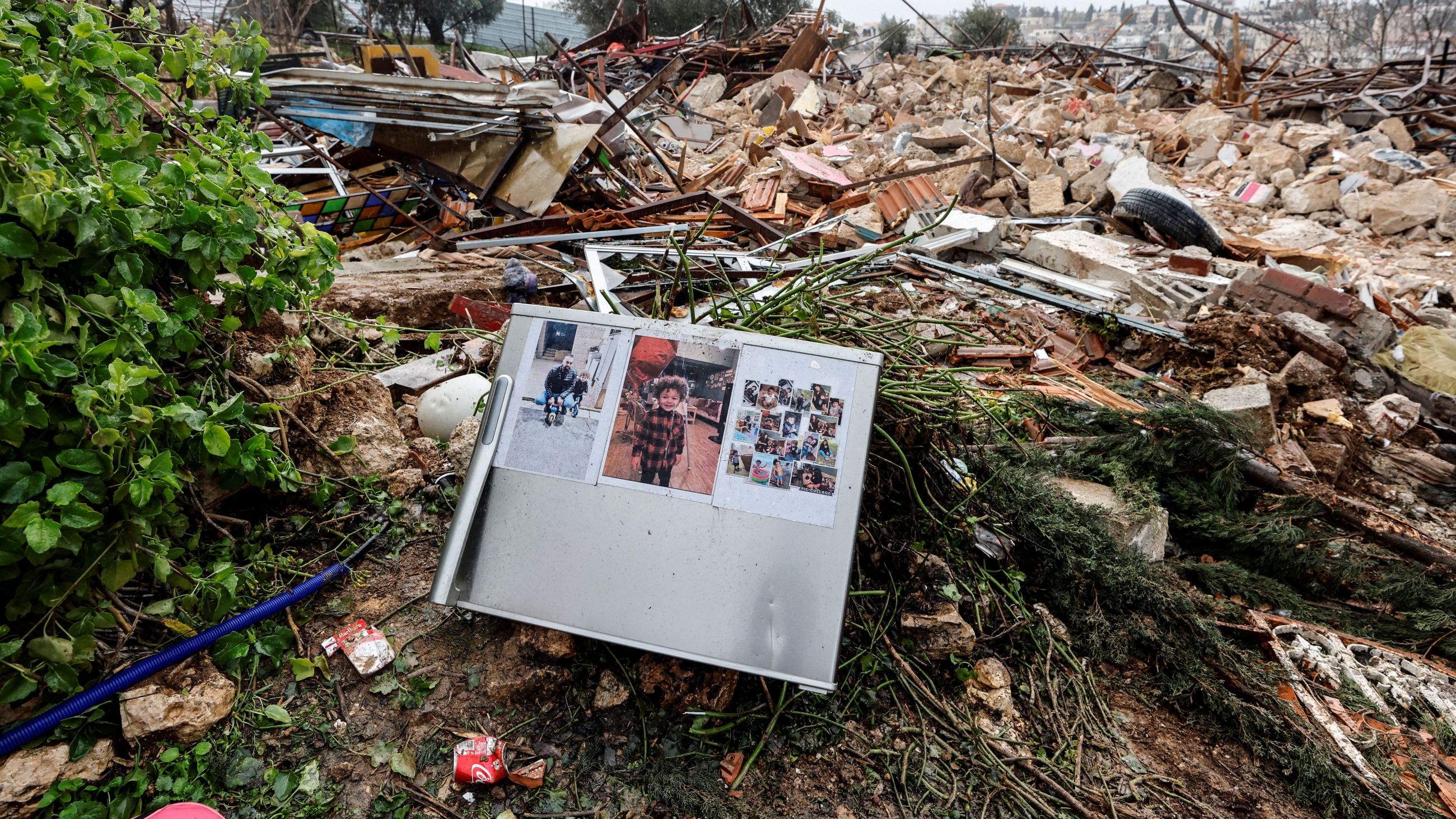
Waiting for news about her detained son and grandchildren, Majda Salhiya looked undeterred by the violent Israeli raid on her home in the East Jerusalem neighbourhood of Sheikh Jarrah a day earlier.
Memories of the raid and the demolition that followed were hazy to the 75-year-old, who suffers from Alzheimer's disease. But when asked about how she felt, her tone was assured and defiant.
“They can detain and threaten us but we will not surrender our land,” Umm Mahmoud, as she is known in the family, told Middle East Eye. “If we have to die, we will not surrender.”
The family of 18 were made homeless on Wednesday after Israeli forces removed them from their house in an overnight raid before razing it to the ground.
Mahmoud Salhiya, the patriarch of the house, was assaulted and arrested with five others. After spending the night in detention, all of those arrested were released conditionally and handed bans from entering Sheikh Jarrah for 30 days.
Holding back the tears and speaking with a breaking voice, Mahmoud looked exhausted when he addressed the press upon his release.
“They assaulted me, I died. I honestly died,” Mahmoud said about the conditions of his arrest and detention.
He told local media that Israeli officers went out of their way to humiliate him, holding guns to his and his relatives' heads while making the arrests and deliberately forcing him out of the house barefoot.
“The manner in which they raided the house was done for revenge,” he said. “This is a government of settlers. They have no honour, no morals.”
When Mahmoud was taken to court, officers took him to see how his home had been flattened, he added. “When I saw it like that, I died,” he said. “They destroyed the house but we will build it again. They will not be here for long.”
Palestinian solidarity
Despite the pain felt by the Salhiyas after the demolition, the support and solidarity they received gave them some respite.
A doctor from the Sbaitan family in Jerusalem gave the keys to his house to the family after they were made homeless, a gesture of goodwill, Mahmoud said, that is typical of the people of Jerusalem.
Since Israeli authorities first attempted to expel the Salhiyas from their home on Monday, dozens of activists had gathered at the property to protect it against any raids and livestream it for the world to see.
In the cold weather, young men and women set up campfires on the Salhiyas’ land, singing and chanting patriotic songs.
'This is a cause that unites us all, protecting Sheikh Jarrah and Palestine'
- Seif al-Qawasmi, Palestinian activist
Seif al-Qawasmi, a Jerusalem activist among those who stayed on the property for two days before the demolition, said he was there because an attack on one house in the city is an attack on everybody.
“We all sat around the fire despite our differences. This is a cause that unites us all, protecting Sheikh Jarrah and Palestine,” Qawasmi told MEE.
"The two nights before the demolition were evidence of the importance of popular presence and social solidarity.”
While the demolition felt like one battle lost for Palestinians, Qawasmi said, the resilience and steadfastness that Mahmoud has shown since Monday has been a source of inspiration that will not be forgotten.
"What Mahmoud did was brave,” he said. “It’s something that will be remembered by future generations.”
'Must stand together'
The Salhiya home was demolished and the family expelled under the pretext of building a school on the land, which the Israeli municipality claims ownership of.
The land was confiscated by Israel after it captured the city in 1967, according to the Absentees' Property Law.
At present, 37 Palestinian families live in Sheikh Jarrah, six of them facing imminent eviction.
Since 2020, Israeli courts have ordered the eviction of 13 Palestinian families in the neighbourhood, which has become a significant flashpoint over the past year, after Israel tried to expel Palestinian families from the area last May to make way for Israeli settlers.
This prompted widespread protests across the occupied West Bank and among Palestinian citizens of Israel, as well as a large-scale military operation in the besieged Gaza Strip.
Ramzy Abbas, a local activist, said the widespread solidarity in May put pressure on Israel to postpone the evictions but people had tostay alert until the court orders are completely reversed.
"We have succeeded in the past [in stopping evictions] by standing together. We must stand together now,” Abbas told MEE.
“Yesterday it was Salhiyas’ house, it could be my home or yours tomorrow."
Additional reporting by Chaymaa Mohamed.
Middle East Eye delivers independent and unrivalled coverage and analysis of the Middle East, North Africa and beyond. To learn more about republishing this content and the associated fees, please fill out this form. More about MEE can be found here.


